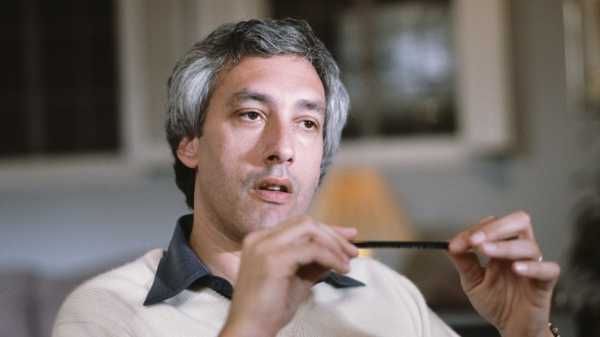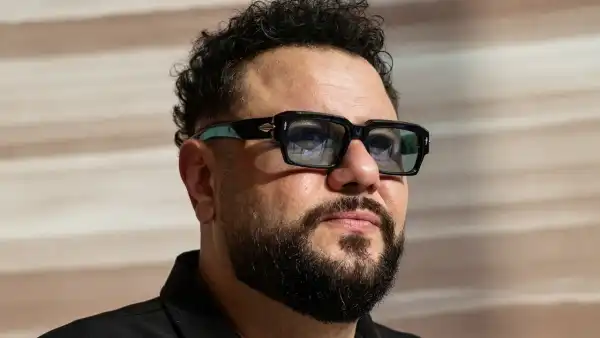
“I’m going to send you a plane ticket. I want you to come out to Hollywood, and we’ll see if you can write.” With those words, Steven Bochco changed my life. Steven had been changing lives for years. He had offered little-known actors roles that would define their careers, and recruited young directors for what were to be Emmy-winning scripts. And, because he seemed to have read everything, he also discovered a bevy of playwrights, academics, and lawyers (among them me, a public defender in the Bronx) whom he nurtured and mentored as television writers. I was not even the first writer named David whose life he changed; I was the last and least of his three Davids.
I know this because Steven told me so. Early in our relationship, after receiving Steven’s notes on a script that he found wanting, I reminded him, a bit defensively, that it was only the third script I’d ever written, and suggested that even David Kelley probably didn’t always get it right the first time. “No,” Steven said evenly. “With David we pretty much shot the whites.” Steven didn’t intend this as cruel or demeaning. It wasn’t meant to put me in my place or to push me to work harder. For Steven, it was simply true. He had a relentless, assiduous fidelity to the truth. He looked squarely and honestly at the world and then unflinchingly described it.
By the time that I met him, Steven had already changed the face of television drama. He’d created “Hill Street Blues,” “L.A. Law,” “NYPD Blue,” “Doogie Howser, M.D.,” and a dozen other shows. He had skied in the celebrity events at Aspen, signed one of the richest productions deals in Hollywood, and bought his first jet. The young, famously pugilistic producer I occasionally heard about had given way to a fully realized man in a deeply loving marriage. By the time I stepped off that plane (he really did send me a ticket), Steven had already achieved the most elusive kind of success there is in Hollywood: personal happiness. He was rich and successful—as are so many out there—but, unlike most, and far more importantly, the Steven Bochco I knew was satisfied, warm, happy, and, above all, at peace.
After getting off that plane, for a week straight, five or six hours every day, I sat with him in his beautiful Santa Monica office, perched on his robin’s-egg-blue sofa while he reclined in his armchair with his feet up on the coffee table in front of us. We talked about law and justice and TV structure and character, the conversation light and easy. But for the huge painting that hung above his desk, the bright-colored letters spelling out “SHOW ME THE MONEY,” the whole experience felt as far from the mercantile enterprise of television creation as could be.
In a writers’ room, Steven was responsive, funny, exacting. He understood that collective creativity is like a ghost orchid—it requires just the right balance of heat and light, and even then only blooms briefly. Steven led by example. He was incredibly open about his life, loves, struggles, and triumphs; in this way, he made it safe for us to bare our souls and extract meaning from our lives and our failures. This was not an exercise in self-improvement but rather a mining expedition. He made it clear: good character-work is grounded in emotional honesty, which means that trafficking in painful truths is a professional necessity. He insisted that the writers’ room be a quiet, honest, inviolate place where we could kick around our frailties and transubstantiate the dark, intimate truths and daily comedies of our lives into compelling television. To the outside world, Steven protected his writers and their visions above all and against all.
And, outside the room, perhaps more than anyone else I’ve ever known, Steven was always just there. He was miraculously available. From that first phone call until he went silent a few months before his death, it was seldom more than twenty minutes before I heard back from him, and never more than a day between the time I’d fire off a script and when he’d call with either comprehensive notes or an invitation to discuss the script over a bottle (or two) of Rombauer at his regular table at Toscana.
Steven managed to make the hard work of the television business feel easy, and even fun. But, as I would learn later, Steven ran an unorthodox writers’ room. For one thing, it was small. The first season of the show that we did together had only three writers plus Steven; for Season 2, after the network upped our order to fifteen episodes, we added only one more. Steven eschewed a writers’ assistant. “If it’s good, we’ll remember it tomorrow,” he’d assure us with a smile. And, though Steven always demanded that we work hard, he was never a devotee of long days in the room; he believed that after two or three hours our creative output would taper off, and thus it’d be time for a nice collective lunch. Of course, television production also requires careful attention to a thousand details, from the budget and physical production to editing and music supervision, and Steven attended to them all with a kind of effortless productivity—a focussed, unflappable grace that set the tone for the entire show.
And he trusted people. While his hands were always gently on the reins, he was intensely collaborative. He elevated his writers, believed in his actors and editors, and empowered his directors. And, in those rare moments in which he opted to assert himself, he’d do it with a kind of self-deprecating hilarity. “I used to be Steven Bochco, you know,” he’d say, with a wry smile; once, when he finally got tired of a lengthy argument that we were having in the editing room, he asked, “Does anyone else here have a jet?” Steven seldom went to set, and, after an exhaustive analysis of each script, he ended every tone meeting with the same admonition: he’d flip the last page of the script closed, look up at his director, smile genuinely, and say, “Don’t fuck it up.”
Working with Steven, you spent a lot of time making sure you didn’t fuck it up. Not because it would bring his wrath—Steven seldom got angry at his people (he believed in kicking up, not down)—but rather because you might disappoint him, and thus somehow hinder the beautiful enterprise that you were all engaged in. Even with everyone doing their best, Steven knew, with a master’s certainty, just how hard it was to make a successful television show. “It’s lightning in a bottle,” he’d say. “Everything has to go right—a great script, the right actors, a director who really gets the material, light, hair, wardrobe . . . and even then you still need timing, luck, and a little bit of magic.” Steven had that magic, and his string of hits (and occasional failures) remains enduring proof. And, for the record, he loved and remained proud of “Cop Rock,” and I suspect that the success of “Glee” and other musical dramas suggests that “Cop Rock” may have been a failure of timing, and magic ,rather than of vision, script, music, or acting.
Just over a year after I first walked into that room, while the network was deciding whether or not to put our show on the air, Steven and his wife, Dayna, came to New York and invited my girlfriend, Robin, and me to dinner. Robin (who is now my wife), like me, had spent most of her professional life as a hard-core public defender, and tended toward the radical. Before the dinner, I gently explained to her that working with Steven was something that I really wanted to do, and I asked her specifically to try not to resent what I expected would be the rather overt trappings of wealth. With her grudging consent, we put on our nice clothes and took the subway down to the Ritz-Carlton, in Midtown Manhattan, where we found Steven, in pressed jeans, loafers, and a white blazer.
After a quick drink, I offered to go out front and get us a cab. “Dear boy,” he said, “I’ve already arranged for a limousine.” And, sure enough, as we stepped outside, a long white limousine pulled to the curb. As neither Robin nor I had gone to a prom, neither of us had ever been inside such a thing, and, as we glided down Fifth Avenue, making small talk, I could sense her becoming more and more uncomfortable. Finally, when her discomfort became palpable, I tried to play it off, lightly telling Steven and Dayna that Robin and I had agreed to a one-night ceasefire in the eternal class war. Steven looked at Robin with incredulity, smiled broadly, spread his hands wide, and said what was clearly true: “What war? Look. I won!”
Sourse: newyorker.com






